
Find Help
More Items From Ergsy search
-

Why do some vaccines require multiple doses?
Relevance: 100%
-

What are the different types of vaccines?
Relevance: 47%
-

What is a vaccine?
Relevance: 45%
-

How effective is the MMR vaccine?
Relevance: 44%
-

What should I do if I miss a dose of Mounjaro?
Relevance: 44%
-

What are the guidelines for meningitis vaccination for HIV-infected individuals?
Relevance: 44%
-

What should I do if I miss a dose of Wegovy?
Relevance: 43%
-

Is there a vaccine for norovirus?
Relevance: 43%
-

What should I do if I miss a dose of Ozempic?
Relevance: 43%
-
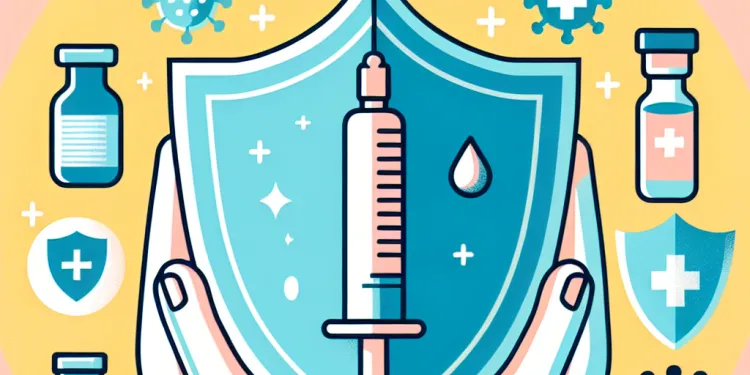
Who should receive the MMR vaccine?
Relevance: 43%
-

What should a patient do if they miss a dose of Baxdrostat?
Relevance: 43%
-

Should I get the chickenpox vaccine?
Relevance: 43%
-
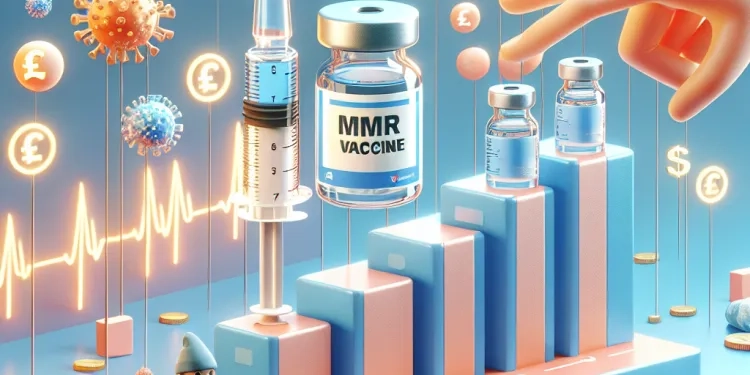
At what age is the MMR vaccine given in the UK?
Relevance: 42%
-

How effective is the MMR vaccine?
Relevance: 42%
-

Can adults receive the MMR vaccine?
Relevance: 41%
-

Are infants recommended to receive the meningococcal vaccine?
Relevance: 41%
-

At what age should children receive the MMR vaccine?
Relevance: 41%
-

What should I do if I miss a dose of Wegovy?
Relevance: 41%
-

What is a subunit vaccine?
Relevance: 41%
-

What is the MMR vaccine?
Relevance: 40%
-
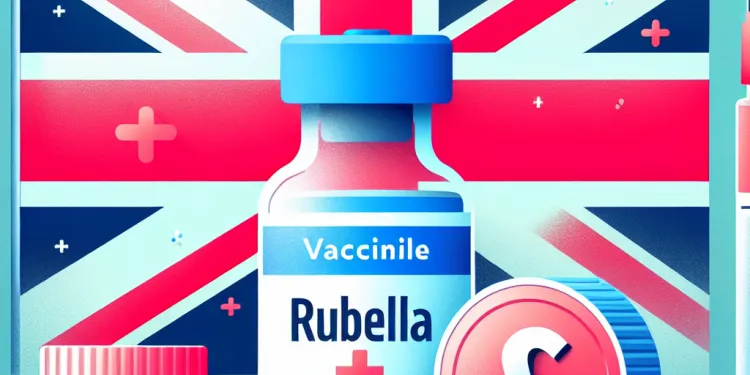
Who should receive the Rubella vaccine?
Relevance: 40%
-

What is a live-attenuated vaccine?
Relevance: 39%
-

Are vaccines safe?
Relevance: 39%
-

Are there vaccines for meningitis?
Relevance: 39%
-

Is it necessary to get a measles vaccine before travelling?
Relevance: 39%
-
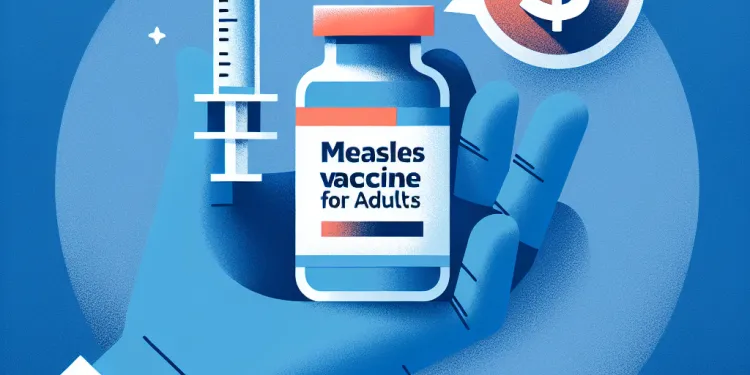
Can the measles vaccine be given to adults?
Relevance: 39%
-

What are vaccines and how do they work?
Relevance: 38%
-

What is the year 8 HPV vaccine? | NHS
Relevance: 38%
-

Does the CDC recommend meningitis vaccines for adolescents?
Relevance: 38%
-
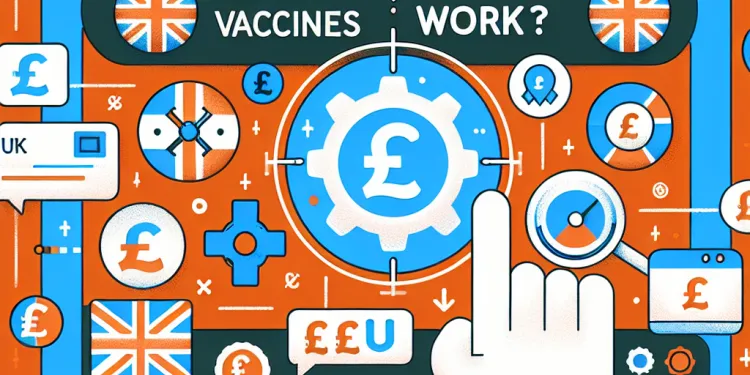
How do vaccines work?
Relevance: 38%
-

Are there vaccination recommendations for people with compromised immune systems?
Relevance: 38%
-

What steps can improve vaccine effectiveness?
Relevance: 37%
-

What is the current measles vaccination coverage in the UK?
Relevance: 37%
-
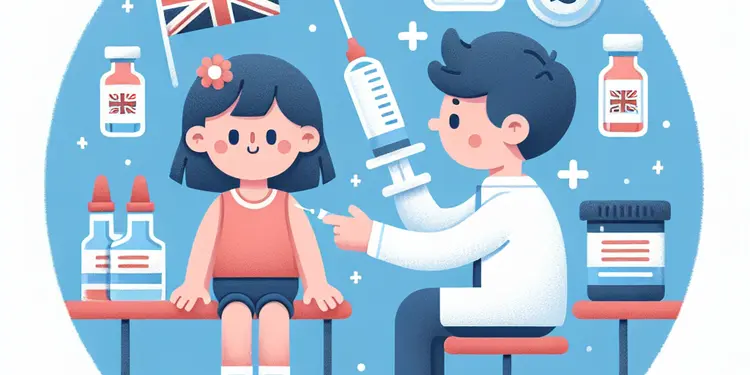
At what age should children receive the meningococcal vaccine?
Relevance: 37%
-
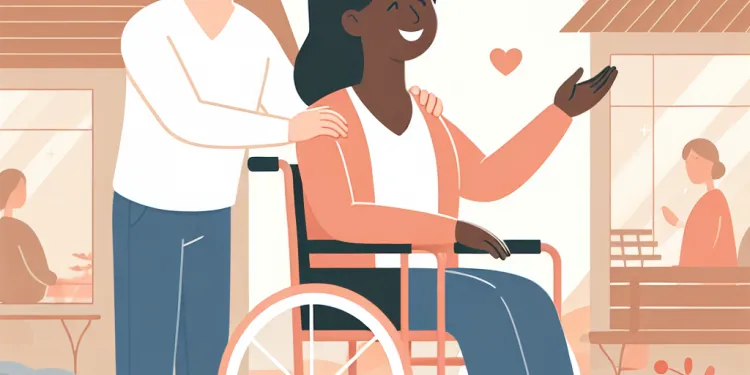
Helping someone with multiple diabilities
Relevance: 37%
-

Children's Vaccination Schedule
Relevance: 37%
-

Is the shingles vaccine safe?
Relevance: 37%
-
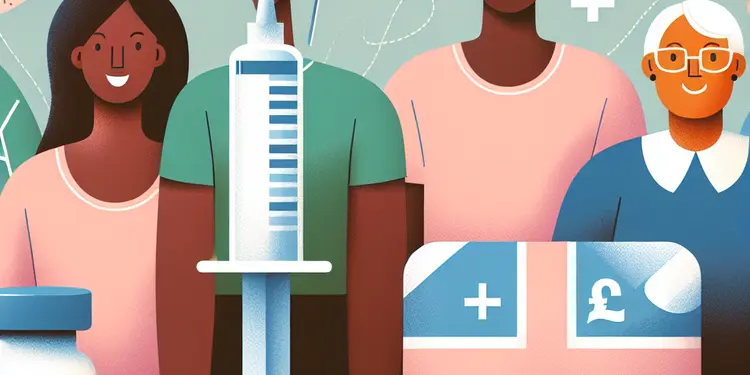
Nationwide Flu Vaccination Campaign Targets Vulnerable Populations
Relevance: 36%
-

Do vaccines work against new COVID-19 variants?
Relevance: 36%
-
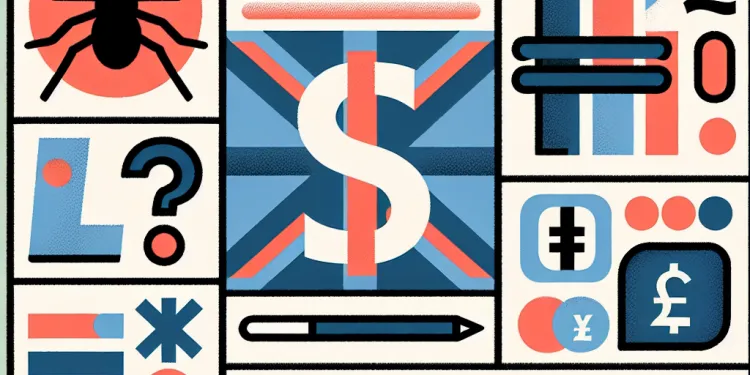
Is there a vaccine for Lyme disease?
Relevance: 36%
Introduction to Vaccines and Dosage
Vaccines are crucial tools in the fight against infectious diseases. However, you may notice that some vaccines require multiple doses, while others do not. Understanding why some vaccines require multiple doses is important as it helps clarify how vaccines work and why adherence to vaccination schedules is vital for effective immunisation.
Building Up Immunity
The primary reason some vaccines require multiple doses is to build up sufficient immunity in the body. The immune system needs to learn how to recognise and combat a pathogen effectively. A single dose of a vaccine might not be enough to fully teach the immune system how to mount a strong response against the pathogen. By administering additional doses, the immune system is reminded and reinforced, leading to a more robust immune memory. This way, when the body encounters the actual pathogen, it can respond quickly and effectively, preventing disease.
Initial and Booster Doses
Vaccines that require multiple doses often start with an initial dose to prime the immune system. This is followed by booster doses at later intervals. The initial dose introduces the antigen to the body, while booster doses ensure the immune system remembers the antigen and reacts efficiently. These follow-up doses enhance and prolong immunity over time. An example of this in practice is the DTaP vaccine, which protects against diphtheria, tetanus, and pertussis, requiring several doses in the early years of life followed by boosters.
Age and Timing
The immune response to vaccines can vary with age. Infants and young children, for example, may not mount an adequate immune response to a single dose of certain vaccines. Multiple doses ensure that immunity is achieved and maintained during these formative years. Furthermore, the timing of doses is critical. Each vaccine has a specific schedule that maximises its effectiveness. Deviating from this schedule can lead to suboptimal immunity.
Different Pathogen Characteristics
Not all pathogens are alike, and different pathogens require different approaches to vaccination. Some viruses or bacteria are particularly adept at evading the immune system. For these, multiple doses of a vaccine ensure a sufficient immune response. Additionally, the nature of certain vaccines, such as those made from inactivated viruses or subunit structures, often necessitate multiple doses to adequately stimulate the immune system compared to live attenuated vaccines.
Conclusion: The Importance of Adherence
For vaccines that require multiple doses, adherence to the vaccination schedule is crucial. Completing the series of doses is necessary to achieve the full protective effect. In the UK, the NHS provides clear guidance on vaccine schedules, emphasising the importance of attending all scheduled vaccination appointments. Vaccines are an integral part of public health, and understanding their dosing requirements enhances public confidence and compliance, ultimately leading to better health outcomes for everyone.
What are Vaccines and How Do They Work?
Vaccines are important medicines that help stop people from getting sick. Some vaccines need to be given more than once. It's important to know why because it helps us understand how vaccines work. Staying on track with vaccine schedules is key to keeping healthy.
Why Do We Need More Than One Dose?
Some vaccines need multiple doses to make the body stronger against germs. The immune system needs to learn how to fight the germs. One dose might not be enough to teach it properly. More doses help the immune system remember and react quickly to germs. This way, the body can stop sickness before it happens.
First and Follow-Up Doses
Vaccines given in multiple doses start with the first dose to teach the immune system. Later, follow-up doses, called boosters, are given. The first dose introduces the germ. The boosters help the immune system remember it. This keeps the body strong over time. For example, the DTaP vaccine, which protects against three diseases, needs several doses when you are young and follows with boosters.
Why Age Matters for Vaccines
How well a vaccine works can change with age. Babies and young children might need more doses because one dose might not be enough for them. Having more doses helps keep them safe as they grow. It’s important to follow the schedule for each vaccine. This is because it helps the vaccine work best to keep them healthy.
Different Germs Need Different Strategies
Not all germs are the same. Some are better at hiding from the immune system. For these germs, more doses of a vaccine are needed. Some vaccines, such as those using bits of the germ, need more doses to work well. Others, using live but weak germs, might need fewer doses.
Why It's Important to Follow the Vaccine Schedule
For vaccines needing multiple doses, it’s important to follow the schedule. Completing all doses is needed to be fully protected. In the UK, the NHS tells people when to get their vaccines. Going to all vaccine appointments is very important for good health. Vaccines help keep everyone safe and healthy.
Frequently Asked Questions
Why do some vaccines require multiple doses?
Some vaccines require multiple doses to build and sustain immunity over time.
What is the purpose of a booster dose?
A booster dose is used to 'boost' the immune response after the initial protection from the primary doses starts to wane.
Do multiple doses improve vaccine efficacy?
Yes, multiple doses can improve and prolong the efficacy of a vaccine by enhancing the immune response.
Is it safe to receive multiple vaccine doses?
Yes, receiving multiple doses is part of the recommended vaccination schedule and is safe and effective.
Why do children often need multiple doses of vaccines?
Children need multiple doses to ensure their immune systems develop strong and lasting protection against diseases.
Can skipping booster doses reduce vaccine effectiveness?
Yes, skipping booster doses can reduce the overall effectiveness of a vaccine, leading to decreased immunity.
What happens if I miss a vaccine dose?
If you miss a vaccine dose, consult your healthcare provider to reschedule and maintain your protection.
Are the additional doses in a vaccine series the same as the first dose?
Often, yes, the additional doses contain the same components to reinforce the immune response.
Why didn't older vaccines require multiple doses?
Some older vaccines did require multiple doses, but advancements in vaccine technology have improved dosing schedules and efficacy.
Can partial vaccination offer any protection?
Partial vaccination may offer some protection, but full immunity typically requires completing the series as recommended.
How are vaccine dosing schedules determined?
Vaccine dosing schedules are determined through clinical trials and research to ensure optimal safety and efficacy.
Do all vaccines require booster shots?
Not all vaccines require booster shots; it depends on how long the immunity lasts from the initial doses.
What is an example of a vaccine that requires multiple doses?
The hepatitis B vaccine is an example that typically requires multiple doses for complete protection.
Why do some vaccines provide lifelong immunity with a single dose?
Some vaccines, like the yellow fever vaccine, are highly effective, inducing long-term immunity after one dose due to the nature of the virus and immune response.
What role do immune memory cells play in vaccination?
Immune memory cells 'remember' pathogens, allowing for quicker and stronger responses to subsequent exposures, often reinforced by booster shots.
Can over-vaccination occur with multiple doses?
No, recommended vaccine schedules are designed to avoid over-vaccination while ensuring adequate protection.
Why are there different vaccines for different viruses?
Different viruses have unique structures and replication methods, requiring tailored vaccines for effective immunity.
How do live attenuated vaccines work?
Live attenuated vaccines use a weakened form of the virus to stimulate a strong immune response, often requiring fewer doses.
What is an adjuvant and why is it used in vaccines?
An adjuvant is a substance that enhances the body's immune response to an antigen, potentially reducing the number of doses needed.
Are there global standards for vaccine dosing schedules?
While there are general guidelines, vaccine schedules can vary by country based on local epidemiology and public health needs.
Why do some vaccines need more than one shot?
Some vaccines need a few shots to work well. The first shot helps your body start to fight the germs. More shots help your body get better at fighting the germs.
Think of it like learning a new game. The first time, you learn the basics. The more you play, the better you get.
If you find reading tricky, try reading with a friend or asking someone to explain. Listening to the words can also help. You can use apps or tools that read out loud to you.
Some vaccines need you to have more than one shot. This helps your body stay strong and fight off germs for a long time.
Why do we need a booster shot?
A booster shot helps keep us safe from getting sick. It reminds our body how to fight germs. This way, we stay healthy for a longer time.
To make it easier to remember, you can:
- Put a reminder on your calendar.
- Ask someone to go with you when you get it.
- Use pictures or videos to learn more about it.
A booster dose is a shot that helps your body stay strong against sickness. It gives an extra push after your first shots start to wear off.
Do More Doses Make Vaccines Work Better?
Yes, getting more than one dose of a vaccine can make it work better and last longer. This happens because more doses help the body fight germs even better.
Is it okay to get more than one vaccine shot?
Yes, getting more than one dose of the vaccine is part of the plan. It is safe and works well.
Why do kids need many vaccine shots?
Kids get many vaccine shots to keep them safe from bad germs. One shot might not be enough to protect them well.
Each shot helps their body get stronger at fighting germs. Some shots need to be done more than once to work the best.
To remember when to get shots, you can use a calendar or ask a grown-up for help.
Children need to get several shots so their bodies can learn to fight off diseases and stay healthy for a long time.
If you skip booster shots, does the vaccine work less well?
If you miss your booster shots, the vaccine might not work as well. This means your body might not stay as strong against getting sick.
What happens if I miss a vaccine dose?
If you miss a vaccine dose, do not worry. You can talk to your doctor or nurse. They will tell you what to do.
It is important to get all your vaccine doses. This keeps you healthy and protected.
Here are some helpful tips:
- Write down the date of your vaccine in your calendar.
- Ask someone to remind you when your next dose is due.
- Set an alarm on your phone for your vaccine appointment.
If you have more questions, ask your doctor or nurse. They are there to help you.
If you miss a shot, talk to your doctor. They can help you get a new appointment and keep you healthy.
Are the extra vaccine shots the same as the first one?
When you get a vaccine, sometimes you need more than one shot. These extra shots help keep you safe from getting sick.
The extra shots can be a little different from the first one, but they all work to make you stronger and healthier.
If you have questions, you can ask a doctor or nurse to help you. They can tell you why you need each shot.
Yes, the extra doses usually have the same stuff to help make the body's defense stronger.
Why did older vaccines only need one dose?
Some new vaccines need more than one shot. Old vaccines usually needed just one.
Doctors learned more about how vaccines work. This is why some new vaccines need more shots now.
Each dose helps your body get stronger. It helps you fight off diseases better.
If you have trouble reading, a friend, family member, or a helper can read it with you.
Some older vaccines needed more than one shot. But now, vaccines have gotten better, so you might need fewer shots.
Does getting some vaccines help at all?
Getting some of the vaccine shots might help a little, but you need all the recommended shots to be fully protected.
How do doctors decide when to give vaccines?
Scientists do tests to find out the best way to give vaccines. This is to make sure they are safe and work well.
Do all vaccines need extra doses?
Some vaccines need extra shots later. This is because the first shots might not keep you safe for a long time.
Which vaccine needs more than one shot?
Some vaccines need more than one shot. An example is the measles, mumps, and rubella (MMR) vaccine. You need to get the MMR vaccine more than once to be fully protected.
Use pictures or videos to help understand vaccine information.
The hepatitis B shot helps keep you safe from getting sick. You usually need to get the shot a few times to make sure it works well.
Why do some vaccines protect you for your whole life with just one shot?
Some shots, like the yellow fever shot, work really well. They help your body fight the illness for a long time with just one shot. This is because of how the shot and your body work together.
How do immune memory cells help with vaccines?
When you get a vaccine, it teaches your body to fight germs. This way, you do not get sick.
Immune memory cells are like little helpers. They remember the germs from the vaccine.
If the real germs come later, these cells help the body fight them fast. This helps you stay healthy.
To understand better, you can use pictures or videos. Talking with a doctor or nurse can also help you learn more.
Immune memory cells help our body remember bad germs. This means they can fight germs faster and better if they come back. Sometimes, doctors give us booster shots to make our body even better at remembering and fighting germs.
Can you get too many vaccines if you have many doses?
No, doctors make vaccine schedules to keep everyone safe without giving too many vaccines.
Why Are There Different Vaccines for Different Viruses?
Vaccines help us stay healthy. They teach our bodies to fight germs. But there are many different germs, called viruses.
Each virus is different. So, scientists make special vaccines for each virus. This is why we have different vaccines.
Here are some tips to help you understand:
- Use pictures to see how vaccines work.
- Ask someone to explain it in simple words.
- Watch a video for more information.
Viruses are tiny germs. Each virus has its own special shape and way of making copies of itself. Because of this, we need to make a special vaccine for each type of virus. This helps keep us safe from getting sick.
How do live attenuated vaccines work?
A vaccine is a medicine that helps keep people safe from getting sick.
Live attenuated vaccines use a small, weak part of a virus or bacteria. This part is not strong enough to make you sick.
Your body learns to fight the virus or bacteria. This way, if you meet the real virus later, your body can protect you.
If you need help reading or understanding, you can ask someone to read with you. Using a dictionary might help too.
Some vaccines use a weaker version of a virus. This helps the body learn how to fight it off. These vaccines often need fewer shots.
What is an Adjuvant and Why is it Used in Vaccines?
An adjuvant is something added to a vaccine to help it work better. It makes the body’s response to the vaccine stronger.
Vaccines with adjuvants can protect you better from getting sick. Doctors use them to make vaccines more effective.
If reading is hard, you can:
- Ask someone to read with you.
- Use an app that reads text out loud.
- Take breaks and read a little at a time.
An adjuvant is something that helps your body fight germs better. It makes your shot work stronger, so you might need fewer shots.
Are there rules for vaccine timing around the world?
People in different countries get vaccines at different times. But there are some rules that everyone tries to follow. These rules help keep people safe and healthy everywhere.
If you find reading hard, you can use tools to read out loud. You can also ask someone to help you understand.
Every country has its own rules for vaccines. This is because every place has different health needs and problems.
Useful Links
Have you found an error, or do you have a link or some information you would like to share? Please let us know using the form below.
-->
This website offers general information and is not a substitute for professional advice.
Always seek guidance from qualified professionals.
If you have any medical concerns or need urgent help, contact a healthcare professional or emergency services immediately.
Some of this content was generated with AI assistance. We’ve done our best to keep it accurate, helpful, and human-friendly.
- Ergsy carfully checks the information in the videos we provide here.
- Videos shown by Youtube after a video has completed, have NOT been reviewed by ERGSY.
- To view, click the arrow in centre of video.
- Most of the videos you find here will have subtitles and/or closed captions available.
- You may need to turn these on, and choose your preferred language.
- Go to the video you'd like to watch.
- If closed captions (CC) are available, settings will be visible on the bottom right of the video player.
- To turn on Captions, click settings .
- To turn off Captions, click settings again.
More Items From Ergsy search
-

Why do some vaccines require multiple doses?
Relevance: 100%
-

What are the different types of vaccines?
Relevance: 47%
-

What is a vaccine?
Relevance: 45%
-

How effective is the MMR vaccine?
Relevance: 44%
-

What should I do if I miss a dose of Mounjaro?
Relevance: 44%
-

What are the guidelines for meningitis vaccination for HIV-infected individuals?
Relevance: 44%
-

What should I do if I miss a dose of Wegovy?
Relevance: 43%
-

Is there a vaccine for norovirus?
Relevance: 43%
-

What should I do if I miss a dose of Ozempic?
Relevance: 43%
-

Who should receive the MMR vaccine?
Relevance: 43%
-

What should a patient do if they miss a dose of Baxdrostat?
Relevance: 43%
-

Should I get the chickenpox vaccine?
Relevance: 43%
-

At what age is the MMR vaccine given in the UK?
Relevance: 42%
-

How effective is the MMR vaccine?
Relevance: 42%
-

Can adults receive the MMR vaccine?
Relevance: 41%
-

Are infants recommended to receive the meningococcal vaccine?
Relevance: 41%
-

At what age should children receive the MMR vaccine?
Relevance: 41%
-

What should I do if I miss a dose of Wegovy?
Relevance: 41%
-

What is a subunit vaccine?
Relevance: 41%
-

What is the MMR vaccine?
Relevance: 40%
-

Who should receive the Rubella vaccine?
Relevance: 40%
-

What is a live-attenuated vaccine?
Relevance: 39%
-

Are vaccines safe?
Relevance: 39%
-

Are there vaccines for meningitis?
Relevance: 39%
-

Is it necessary to get a measles vaccine before travelling?
Relevance: 39%
-

Can the measles vaccine be given to adults?
Relevance: 39%
-

What are vaccines and how do they work?
Relevance: 38%
-

What is the year 8 HPV vaccine? | NHS
Relevance: 38%
-

Does the CDC recommend meningitis vaccines for adolescents?
Relevance: 38%
-

How do vaccines work?
Relevance: 38%
-

Are there vaccination recommendations for people with compromised immune systems?
Relevance: 38%
-

What steps can improve vaccine effectiveness?
Relevance: 37%
-

What is the current measles vaccination coverage in the UK?
Relevance: 37%
-

At what age should children receive the meningococcal vaccine?
Relevance: 37%
-

Helping someone with multiple diabilities
Relevance: 37%
-

Children's Vaccination Schedule
Relevance: 37%
-

Is the shingles vaccine safe?
Relevance: 37%
-

Nationwide Flu Vaccination Campaign Targets Vulnerable Populations
Relevance: 36%
-

Do vaccines work against new COVID-19 variants?
Relevance: 36%
-

Is there a vaccine for Lyme disease?
Relevance: 36%


